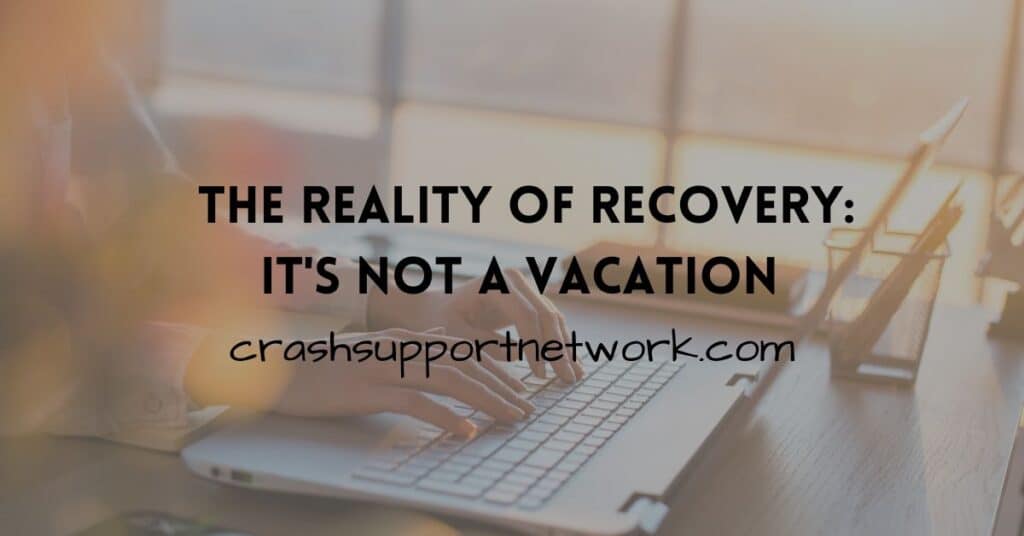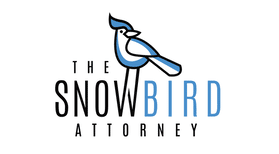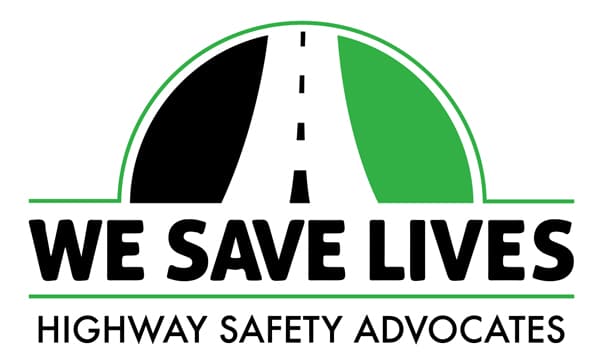
Recovery takes time, effort, and a lot of patience. And no, it’s not a vacation. The struggle isn’t just about getting better, it’s about navigating life’s challenges without the financial safety net to back you up. It’s a constant fight to get back to normal while dealing with the real-world pressures of bills and responsibilities. People often said to me, “It must be nice not to have to work.” I can’t tell you how deeply insulting that felt—especially considering I had just survived a horrific motor vehicle crash. That life-changing crash left me with multiple injuries and turned my life upside down. Every day since then has been about healing, coping with pain, navigating medical treatments, and trying to piece my life back together.
There was nothing “nice” about this. I didn’t choose to be out of work. I’d give anything to have my health back and to be able to return to a normal routine. But instead, I’ve been dealing with not just the physical recovery, but also the financial stress and emotional toll that came with it. Insurance doesn’t always cover what it should. Disability benefits, if approved at all, are slow and often not enough. For anyone who thinks sitting at home after being injured in a crash is a vacation, you might want to reconsider. Recovery is not about kicking back and relaxing. It’s about fighting to get back on your feet while dealing with the financial and emotional toll that comes with it.
Recovery is Filled With Uncertainty
When you are injured, you’re not just facing physical pain; you are often unable to work, which means no income coming in. This puts you in the difficult position of trying to figure out how to pay for medical treatment, daily expenses, and all the other costs that come with recovery. It is not just about healing. It’s about surviving the financial strain while trying to recover physically. Without the ability to work, the stress of worrying about money can be overwhelming. The pressure of not knowing how long it will take to heal, combined with the fear of running out of savings, can make recovery feel like an uphill battle. You are trying to get better, but it feels like the clock is ticking against you.
It is easy to assume that someone sitting at home after being injured in a motor vehicle crash is just resting and watching netflix, but the reality is much more complex. Recovery is hard, and for many, it’s not just a matter of taking time off to relax. It’s a period of intense emotional and financial strain. It’s a time of uncertainty, where every day is spent trying to figure out how to get better physically while juggling the reality of bills piling up. Being out of work due to illness, injury, or disability is often anything but a break—it’s usually filled with uncertainty, stress, and isolation. People often underestimate the mental and emotional toll of navigating recovery without a safety net, especially when insurance coverage is limited or denied, and disability benefits are delayed or inadequate.
We Didn’t Volunteer for This
I don’t also think people quite understand how busy we are when we are recovering. It’s not a break. It’s a full-time job that no-one would ever volunteer for. Every day is filled with doctor’s appointments, physical therapy, managing medications, trying to get insurance or disability to come through, and dealing with the mental and emotional toll of everything we’ve lost. Some vacation right? Healing takes time, effort, and strength—sometimes more than we even knew we had. And all of that is happening while trying to keep up with basic life responsibilities, often without the energy or resources we once had. So no, it’s not “nice.” It’s painful, exhausting, and often very lonely. What I—and others like me—need isn’t judgment or assumptions, but understanding, patience, and compassion.
So, next time you hear someone say, “It must be nice to not have to work,” remember that it’s not a vacation for us. It’s a journey of overcoming pain, financial stress, and the unknowns of how long recovery will take. It’s important for people to acknowledge these challenges and offer support to those going through such tough times, whether that’s through understanding, financial help, or emotional support. So, no—it’s not a break. It’s not time off. It’s a full-time fight to recover and survive.
If you know someone who is recovering from trauma, reach out, listen and support them. It might mean more to them than you realize.
S. Dawne McKay is a survivor of a horrific crash that changed her life forever. Dawne shares her personal journey as a Crash Survivor Blogger and also collaborates with crash survivors as Guest Bloggers allowing them an opportunity to share their stories. Dawne is also the author of the book, “Talk Crash to Me – What to Expect After Surviving a Collision and How to Manage Your Recovery” which is available for purchase on Amazon.
The Crash Support Network is a unique one-of-a-kind website consisting of an online support group, a crash survivor blog, a quarterly newsletter, “Sharing Our Recovery” as well as highly informative articles. Our website is based on relationship-building and puts the needs of survivors first by creating a helpful resource for victims and survivors of motor vehicle crashes.





